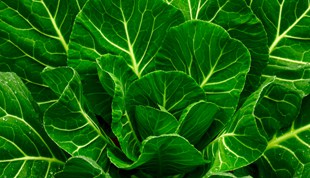Indole-3-carbinol (IC3) Fact Sheet
About Indole-3-carbinol (IC3)
Indole-3-carbinol, or IC3, is a product formed from the breakdown of glucobrassicin, a chemical compound that is naturally found in cruciferous vegetables, such as broccoli, cabbage, cauliflower, collard greens, kale, turnips and Brussels sprouts. Chopping or chewing cruciferous vegetables releases the plant enzyme myrosinase, which breaks down glucobrassicin into indole-3-carbinol.
Research shows that when given before or simultaneously with a carcinogen, IC3 has the ability to inhibit the development of cancers of the breast, uterus, colon, stomach, liver, prostate and lung. In some experimental studies, it was suggested that IC3 can actually reduce oxidative stress by scavenging free radicals in your body, which further lowers our risk for certain types of cancers. It should also be noted that IC3 can modify the level of sex hormones, such as estrogens, contributing to both their anticancer activity and some of their side effects.
Indole-3-carbinol and Aging
Indole-3-carbinol plays a very important role, particularly in the elderly, when it comes to protecting the body against autoimmunity. It also provides relief from symptoms of chronic fatigue syndrome and fibromyalgia, and may prevent or suppress the development of prostate, colon and breast cancers.
Indole-3-carbinol is considered to be one of the most important phytochemicals that stimulates detoxification of the liver and the entire digestive tract. Additionally, IC3 has shown to alter the metabolism or activity of the hormone estrogen in different ways, hindering the development of cancers that are estrogen-sensitive. An increase in estrogen may result in several gynecological conditions, such as bloating and tenderness of the breast during a woman’s menstrual cycle. It may also result in increased risk for heart disease, stroke, and estrogen-dependent cancers including ovarian and cervical cancer.
Indole-3-carbinol appears to be metabolized into other compounds such as diindolylmethane (DIM), which is two IC3s bound together. These compounds are then absorbed by the body to create the therapeutic effect.
Do I Have a Deficiency of Indole-3-carbinol?
There is no known state of deficiency that exists with regards to the nutrient indole-3-carbinol.
How Can I Add Indole-3-Carbinol to my Diet?
Glucobrassin is usually found in high concentrations in cabbage, Brussels sprouts, cauliflower, broccoli, kale, turnips, collards, and watercress (belonging to the cruciferous family of plants). Vegetables do not, in fact, contain indole-3-Carbinol. Instead, indole-3-carbinol is only formed when the glucosinate glucobrassicin is broken down by the enzyme myorinase, a plant enzyme during cutting or chewing.
How Much Indole-3-Carbinol Should I Take?
Since the human body often cannot always get about 200 mg per day of indole-3-carbinol from fresh or cooked food sources, it is made available in pharmacies in the form of a dietary supplement. Those who are taking supplements should consult their physicians prior to taking it to be able to identify the appropriate dosage. Indole-3-carbinol supplements can be in the form of capsules or tablets. On average, individuals who are taking indole-3-carbinol take 1 capsule 2 to 3 times a day which equates to 200-800mg/day.
The daily recommended dose of indole-3-carbinol supplement depends on the strength of the supplement form and on the reason why it is being taken. Generally, the therapeutic dosage of indole-3-carbinol is close to 400 to 800 mg daily.
Indole-3-carbinol is taken preferably with meals since this nutrient’s effects are activated by stomach acid and the acidity is a usual response from food.
Side Effects
There are very few scientific reports that pertain to the side effects of and drug interactions with the indole-3-carbinol supplement. However, individuals who experience breathing problems, tightening of the chest, chest pains or skin rashes must inform their doctors about these symptoms right away as they may be allergic to the dietary supplement. Other side effects include tremor, nausea, increased blood cholesterol levels, increased bowel movements or liver problems.
Contraindications
Pregnant and lactating women and individuals who are taking estrogen medications should avoid taking indole-3-carbinol supplements due to its effects on the estrogen levels in the body.







